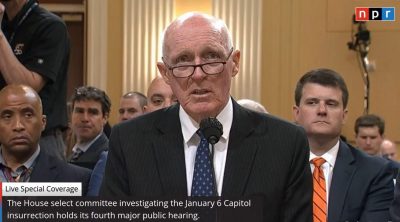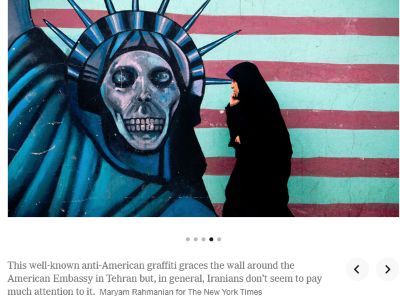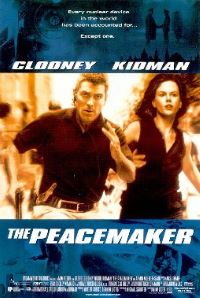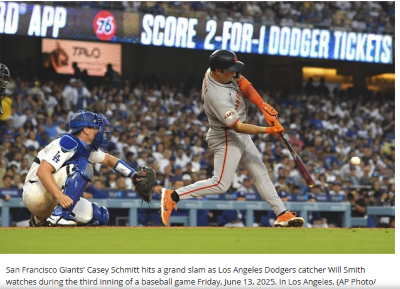
I have returned from the American Revolution in the Mohawk Valley conference run by the Fort Plain Museum and am preparing for the July 4 parade by the Lower Manhattan Historical Association. This seems like a good time to catch up on what has been going on in the world of the American Revolution 250th.
There are four different tracks to consider:
1. American Revolution scholarship – this refers to academics talking to academics about their work on the Revolution.
2. 250th Institutional Conferences – these are meetings which may or may not involve academics but are primarily geared to the institutions which will be offering public programs in conjunction with the 250th or are teaching it in k-12 schools.
3. 250th Public Conferences (and programs) – the Mohawk Valley conference I just attended is an example with presentations by scholars to a general public audience.
4. Tours – these are physical events involving American Revolution sites such as the bus trip as part of the Mohawk Valley program.
This blog will begin to survey some of the programs which I have attended in person or online within this rubric.
AMERICAN REVOLUTION SCHOLARSHIP
One example of this type of program is the “Foundations of Independence Protest and Communication in Revolutionary America, 1770-2020” by Iona College and the Institute for Thomas Paine Studies. I mention it because this past weekend besides Juneteenth there also was short symposium by the Thomas Paine Historical Association and ribbon-cutting for their building approximately one mile from the Iona campus.
Some of the topics discussed and the subsequent Q&A touched on areas which may of interest to the general public:
1. the lack of press coverage then of British atrocities on prisoner of war ships
2. the differences in speed in the dissemination of information then versus today
3. classification of death as due to lunacy and not suicide which was a criminal act as a way for the family to maintain the estate – the position of coroner was an unpaid lawyer and not a doctor who participated in a money-making scheme for the crown.
This blog is not intended to report the entire conference proceedings but sometimes certain items really caught my attention in unexpected ways. One technique employed by presenter Jacqueline Reynoso was to give students a packet of curated newspaper articles on the failed military campaign to capture Quebec at the onset of hostilities. The students then followed the news as the colonists did one article at a time but without knowing the ending. Needless to say, the same teaching technique could be used for the Russian invasion of Ukraine. The newspapers provided the students with the opportunity to think through, speculate, and explore contingencies. In the Q&A, mention was made of students enjoying the actual touching of replica newspapers versus the more sensory removed digitized newspapers.
Even though this was an academic conference, in the plenary, Zara Anishanslin, University of Delaware stated there was a need to tear down the walls between the academy and the public including historical societies if we are to survive. She also mentioned the often-repeated warning of Benjamin Franklin about our having a republic if we can keep it. These words are eerily relevant as only a few days ago Judge Luttig in his testimony to the House Select Committee claimed there was a clear and present danger resulting from the unprecedented constitutional crisis in the attempt to overthrow the government which had occurred. He warned that it could be repeated in 2024 with 2020 ending up as only a trial run. It is quite possible that the focus of historical attention may shift from the American Revolution period of winning our independence to the period immediately afterword in preserving it. George Washington stepping down from power as a military leader and then as president may become a figure of importance for what happened after 1783 beyond what happened before then.
Anishanslin ended her talk on images of Betsy Ross and Lady Liberty with a musket by urging the audience to think about how we use art and architecture to celebrate, a reminder of how fast images become national given the change in technology.
Lauren Duval, University of Oklahoma, added that the 250th presents a moment to include scholarship on the memory of the American Revolution and an opportunity to reshape how we remember it. On paper the sentiment seems valid. The challenge is how exactly the scholars are to do this without becoming caught up in the culture wars.
That challenge was expressed during the Q&A when the question was asked if it is possible to tell an honest story of the American Revolution that is still celebratory. Anishanslin replied that it is a more exciting story by expanding it. True but here is where the words used and way it is done is critical to determine whether or not the audience will accept the changes to the narrative being expressed by the scholars.
AMERICAN REVOLUTION CELEBRATION/COMMEMORATION
The conference session on the 250th highlighted this challenge. One concept gaining traction is to view the 250th as a time of commemoration and not celebration. There is a need to include the negative aspects of the American Revolution that have been marginalized. What is not clear is why living in a society that can face negative aspects in its history and revise a national narrative is not cause for celebration as Anishanslin suggested. Exactly how many countries do this anyway – expand this national narrative to be more inclusive?
New York State historian Devin Lander observed that New York should not just congratulate itself for the abolition of slavery in 1827, Seneca Falls, and Stonewall. Instead it should ask itself why these events needed to happen in the first place. The story of the American Revolution should be contextualized. It would be disappointing he said if the 250th ended up only being a series of parades.
One hopes that part of the contextualization will include comparing the United States at its birth with the rest of the world. How many large multi-racial, multi-ethnic, multi-religious countries with no slavery and where all adults could vote and live freely based on their sexual orientation were there in 1776 or 1787 or today? How much did the Declaration of Independence contribute to the very words and ideals later expressed in subsequent social and political movements?
At this point I am drawn to the comments of Arizona State House Speaker Rusty Bowers. In the fourth session of the House Select Committee hearings, he referred to the Constitution as “divinely inspired.”
Do any of the presenters as this conference share that perception?
Do academics have any sympathy, empathy, or sensitivity for Americans who share such views?
Are academics more likely to refer to the shortcomings in the American Revolution? That America was born in sin? That America needs to redeem itself?
As best I recall, in all the conferences I have attended online or in-person or lectures I have heard both by individuals and history organizations including national ones, there is no one who is reaching out to people who think the Constitution is divinely inspired. My prediction is that the 250th will be weaponized into another culture war conflict between the Woke who disparage America and the Trumpicans who abuse it with the people on Team Normal being ignored.






Hi Peter,
Another excellent blog! I do hope some scholars will address the questions you raised, in particular
“How many large multi-racial, multi-ethnic, multi-religious countries with no slavery and where all adults could vote and live freely based on their sexual orientation were there in 1776 or 1787 or today? How much did the Declaration of Independence contribute to the very words and ideals later expressed in subsequent social and political movements?”
An examination of these topics would be most interesting.
Stephanie
Nice to see mention of the Ft Plain conference*. The conference at Iona sounded interesting. As for media coverage. and clear bias, I am quite disappointed in Columbia U’s School of Journalism. An institution of its statue should never have permitted itself to become a tool for any standing administration, but they, like the NY Times and WaPost, have done just that. Not Journalism at all, and a danger to our country as a whole…. I really don’t like to look to the NY Post for unbiased news coverage. A shame, really…. and the press should be ashamed. Citizens, on the other hand, should be nervous. Not unlike Nazi Germany of the last 30’s….
stay well…….
bob
I am an appointed historian for a municipality. We have had the unique identity that our town was settled by “12 Quakers from Adams, Massachusetts”. I always believed that there was more to this history. After two years of research and trips to Massachusetts, I uncovered several interesting facts……and they all led to the American Revolution. Yes, Quakers were first arrivals but 12 out of the first 20 families were not! I am very excited about adding the facts to our town’s history and have given numerous presentations this year talking about my discovery!
Glad you were able to learn more about the origins of your community. Peter